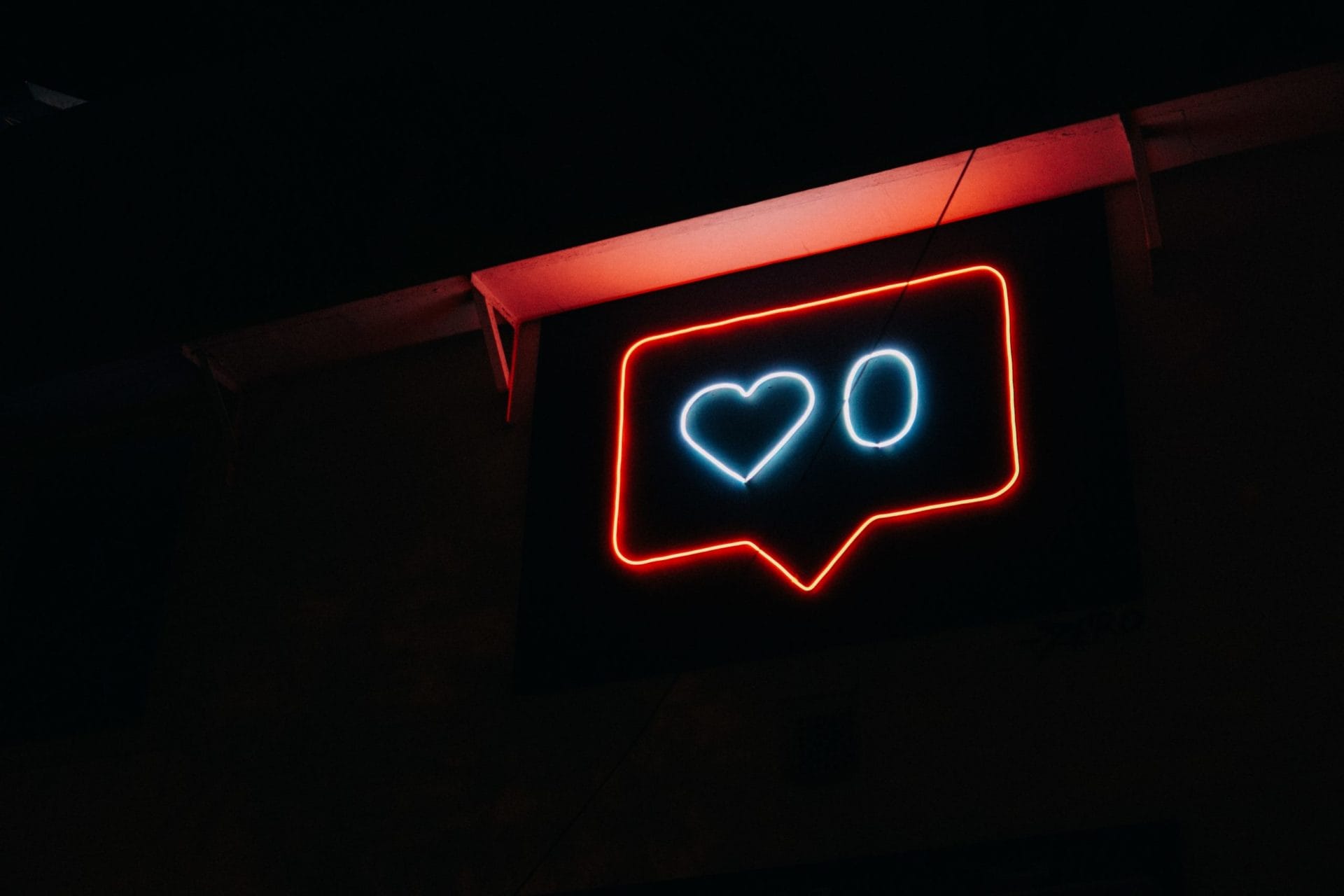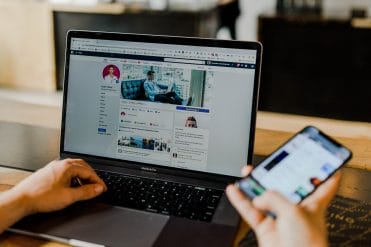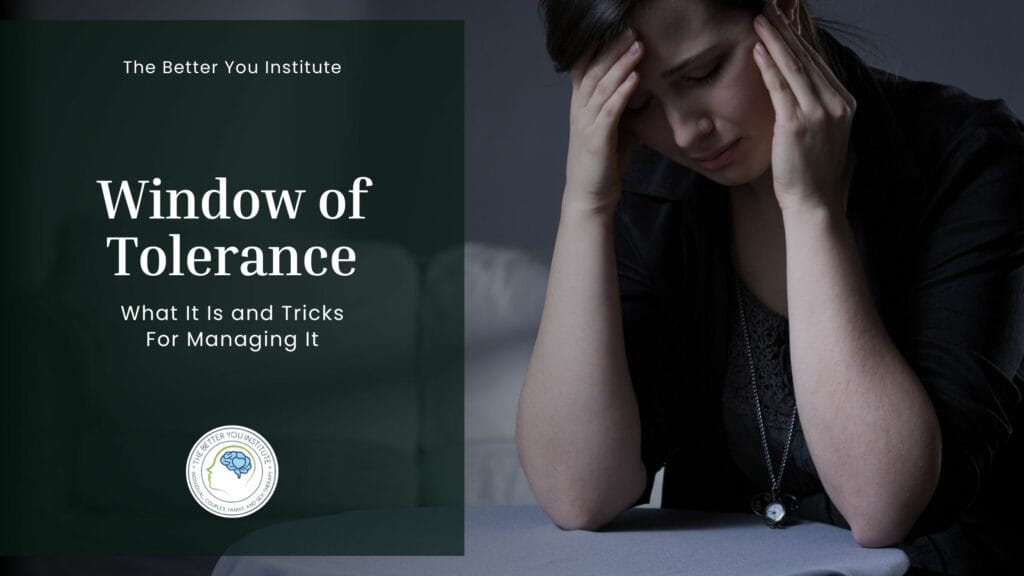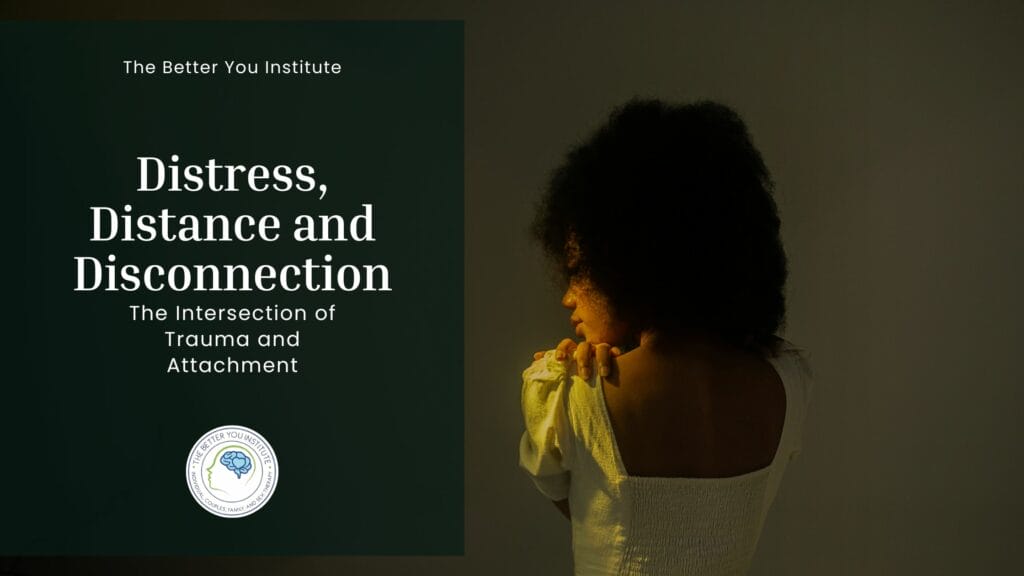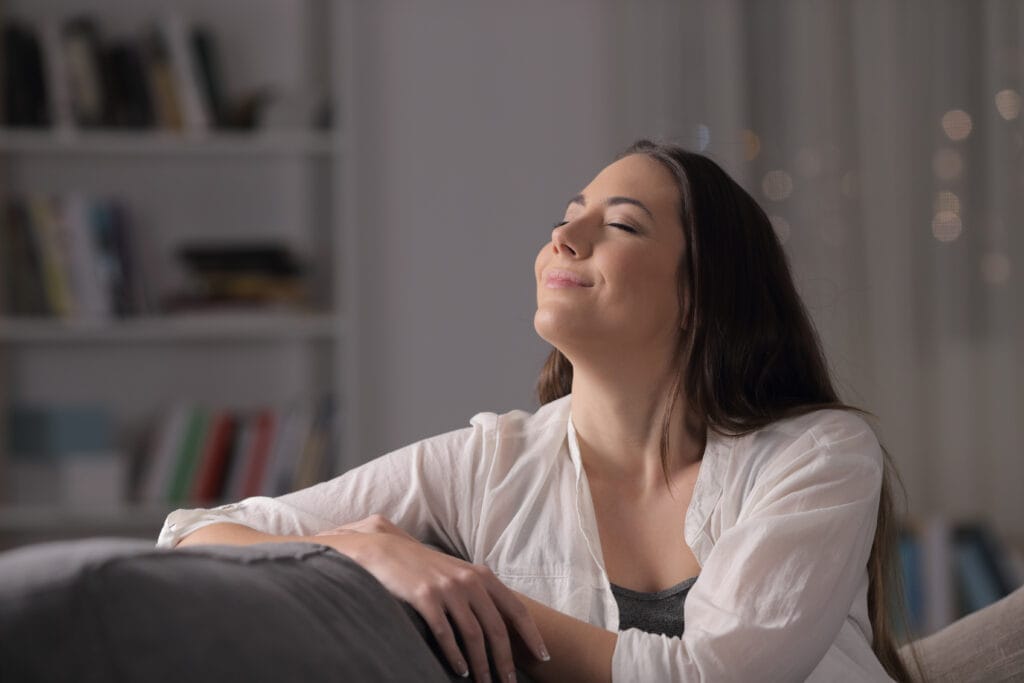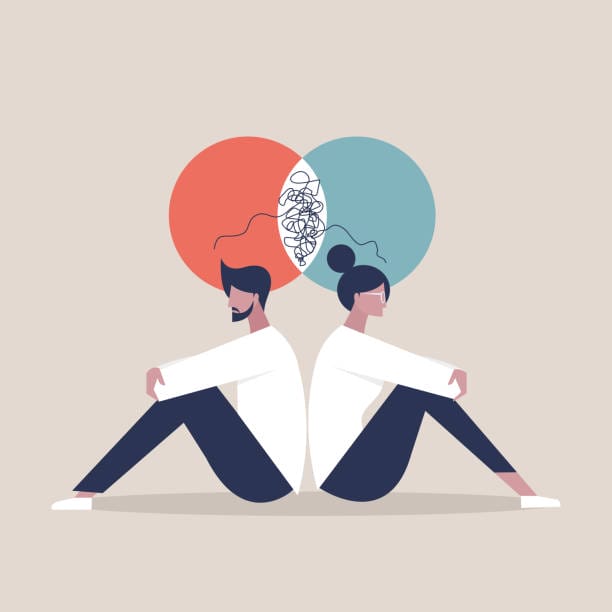However, like every other trend in society, moderation was absent, and we felt those effects. Researchers found that excessive use of social media led to increased feelings of depression and anxiety. Society started wondering if social media was too good to be true or if we needed to set ground rules for this new muse. As for all things in life, we need balance. You may ask where to begin with putting our feet back on the ground in a virtual world that lies at your fingertips. One answer is setting boundaries. Boundaries are essential to experiencing all the good social media can offer without risking your happiness.
Table of Contents
Why We’re Hooked on Social Media
We should begin by acknowledging how social media draws you in. Understandably so, it adds to peoples’ lives and connects them to others. Social media also allows freedom for individuals to express themselves. In many ways, social media serves a positive purpose. It provides ways to network with professionals and stay in touch with loved ones. When MySpace launched, they created a profile for individuals to manifest who they wanted to be or be perceived as. Not long after, Facebook followed suit; then Twitter, Instagram, Snapchat, and TikTok have a tight grip on millennials and Gen-Z alike.
 What is the hype all about?
What is the hype all about?
Social media serves as a way for both extroverted individuals to connect and express themselves and introverted people to get those same needs met. When getting through the school day is hard, some teens have the internet to rely on to blow off steam. A good example would be kids who are bullied throughout school. Bullying is a painful and traumatic way to endure daily life. Coming home to escape that world through a screen, where you can recreate your persona, is a common way to cope. Social media serves as an outlet for people looking to escape the real world and real problems. Scrolling mindlessly, they daydream of the ideal version of themselves they create online.
It also serves as a voice for the silenced. Whether individuals were quiet by choice or silenced by others, the internet offers communication and connection with individuals similar to themselves. This provides a sense of comradery and comfort. Social media also serves as a tool to find long-lost family or friends. People who are adopted now have a platform to find their biological families. Those who move away from their friends when they are young can reconnect as adults. So with everything that social media had to offer, where did it all go wrong?
Social Media’s Double-Edged Sword
With social media, the consensus is that it is an enjoyable way to spend free time and helps individuals feel connected. However, another large consensus is that it has a significant contribution to mental health decline. In some ways, social media can be conceptualized as playing with fire. It starts as a great way to socialize, an appropriate forum for creative expression, and a massive source of entertainment. The second edge of that sword is how it impacts the brain after a certain point. It increases physical isolation, anxiety symptoms, and consumes excessive amounts of time.
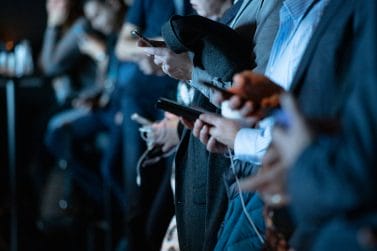
1. Social Media can be Addictive
Many have suggested whether social media can be an addiction. However, some individuals don’t realize that as they scroll on their phones, their brain is actually releasing a chemical known as dopamine. Dopamine is a neurotransmitter that acts as a reward signal in the body and mimics a feeling of euphoria. This neurotransmitter is also released during other “feel-good” behaviors such as sex, laughing, and addictive drugs. So, effectively, scrolling on the ‘Gram becomes addictive as your body releases these chemicals each time you scroll, causing your brain to require more dopamine each time to feel the same euphoric effects.
Experts suggest that we don’t even realize the number of times we click on our social media apps. Whether it be to scroll, update a status, post a picture, or message a friend, it happens mindlessly. An article by Business News Daily suggests that individuals check their phones about 60 times a day, leading to about 15 hours per week spent on the screen. Many have said they consider it compulsive at this point. As if it’s a reflex when their phone is unlocked to check social media before putting the phone down. So how can all this social media exposure impact ones’ well-being?
2. Problems with Procrastination
Social media users, ranging from adolescence to adulthood, reportedly spend between three to eight hours a day on their phones. That is three to eight hours a day being taken away from daily responsibilities that, when completed, provide a feeling of productivity and accomplishment.
Let us consider Cynthia as an example…
Cynthia is a 23-year-old woman fresh out of college and starting her new corporate job. Overwhelmed with her first big project, she has three reports and a presentation due at the end of the week. Pent up with feelings of stress, she finds solace in picking up her phone and scrolling on Instagram. After climbing out of a rabbit hole of makeup tutorials and funny dog videos, she looks at the clock and realizes four hours have passed. Cynthia is hit with a wall of exhaustion but realizes she has six pages to crank out of her report before the deadline. So here comes the rush of cortisol, the rapid breathing, and the pit in her stomach.
Crunched for time, Cynthia writes six pages of seemingly repetitive nonsense and submits the report at midnight before her meeting. Suddenly, when she thought she would be relieved of her stress, Cynthia is surprised to notice she is flooded with disappointment. She realizes she may not have been as thorough as she hoped and doubted whether these reports were her best work. Riddled with anxiety about her boss’s thoughts, Cynthia crawls into a fetal position, escaping to social media as she awaits feedback. Simultaneously, she avoids her next presentation and thus repeats the cycle all over again.
It’s not at all uncommon…
Procrastinating on tasks we must do throughout the day is a norm everybody faces in one way or another. However, it is important to consider why we’re doing it. Oftentimes, procrastination is a defense mechanism to avoid deeper, negative feelings the task may trigger. In Cynthia’s case, she may feel inadequate at conducting research, writing, or experiencing imposter syndrome in her first adult, corporate job after graduation. She considers these feelings as weaknesses, and it often brings out feelings of low confidence in her ability to meet her boss’ expectations. Instead of bringing these concerns to her supervisor and risk highlighting her incompetence, Cynthia compartmentalizes her concerns and distracts herself through her phone.
Procrastination through distraction is a quicker solution and involves no one else but herself. However, while this strategy may help Cynthia feel better now, it will only last until the next task triggers these same feelings. In other words, procrastination is just a band-aid to the deeper issue. It’s not a solution.
3. Impacts on your self-image
Another pillar of this topic is how social media affects one’s self-image. At this point, it is no surprise that exposure to media impacts how society sees itself through photoshop, editing, and illusions. But what exactly is the process going on inside our minds? Simply put, the media releases images of “perfect” bodies, which many consider perfect skin, certain body types, and ideal hair. This causes us to compare and consider how we are less than, rather than focusing on things we appreciate about ourselves. “Perfection” or influencer type media finds a way to trigger something in each consumer, even if their insecurities are different.
Theodore Roosevelt once said, “Comparison is the thief of joy.” And though social media didn’t exist when he said this, his quote is incredibly relevant to these platforms. While we compare our lives to others’ lives, we miss out on opportunities to practice gratitude for what we do have. I use the term “we” because it is a common, collective experience. Its human nature to compare and focus on what others have. Rather than stress about participating, acknowledge when it happens and practice mindfulness and compassion instead.
4. Feeling “othered”
In addition to influencers and media’s portrayal of what sexy and healthy is, there is bullying and a lack of or over representation, which can lead to low self-esteem and feeling like an outsider.
Bullying
People tend to be much harsher with their words when behind a screen and not looking personally into the eyes of the person they are saying mean things about. While one might be able to say they are “venting” on Twitter about their partner, their partner may see that and feel violated and betrayed. Or, adolescents start groups that are in reference to someone they are picking on. These actions can be taken with a simple click of a button but leave detrimental effects on those that are on the receiving end of the messaging.
Representation
Moreover, representation is essential to our well-being. Do we see ourselves in the people who report success or have thousands of followers? Are our algorithms keeping us stuck in a closed-minded way of seeing the world? There is a real danger in how our newsfeeds are programmed to function for us. If we do not intentionally seek information that is different than what the algorithms deem we want to see, we can get tunnel-visioned into one way of thinking or feel ostracized because there is a lack of representation of ourselves in certain social realms.
5. Social Media as a Coping Mechanism
The fourth area I’ll discuss in this article is social media as a coping mechanism. Similarly to procrastination, individuals may use social media to cope with other negative feelings due to their environment. Have you ever been in a situation that causes so much discomfort or angst that you wish you could leave but can’t? So, instead, you grab your phone and jump into the social media world as an escape. Let’s examine this scenario through the eyes of Will, who is a 28-year-old living in the city with his girlfriend.
Will just got home from a long day at work…
He finally has time to sit down and connect with his girlfriend. Due to their conflicting work schedules, quality time is rare and his girlfriend is feeling unsatisfied with their relationship. With such a short window to discuss their issues, Will’s girlfriend loses her temper in an attempt to get her message across quickly. Since Will is the type of person to shy away from conflict (conflict avoidant), he isolates himself in the bedroom until it’s time to go to sleep. To skip the screaming, Will begins going straight to bed after work, causing his girlfriend to feel more alone and disappointed in the relationship. While he lays in bed, Will finds himself spending four hours a night finding entertainment through TikTok. For once, the amusing drama on his phone screen did not involve him or his girlfriend, and he could scroll as he pleases.
Time passes on and Will’s friends ask how his relationship is going and he is met with the question “what have you been up to?” Suddenly, Will’s mind draws a blank. He could not remember for the life of him one memorable moment in the last few weeks. This is when it dawned on him that he spent nearly all his free time couped in his bedroom, avoiding the anxiety of conflict. Will was coping by imagining alternate realities through the content of social media. He was so busy avoiding their conflict that he avoided his own life, losing the present moment and having nothing to show for his free time.
Can you relate?
Ever realize as time passes by that you have little to show for it? As if looking back on the recent past is mainly squares of black where experiences should be? These blanks are one of many ways social media can steal from the human experience. It also slows the healing process when individuals are aware of their negative emotions but don’t properly have a way to handle them. Instead, they rely on social media as a mental vacation from life. Having a safe space is important, like connecting with friends or a serotonin surge from puppy videos. Though it’s also ideal to confront and process negative situations that are not serving you. This article is all about learning when those different mechanisms are appropriate.
6. Social media reduces social behavior
Finally, one of the most noticeable changes since the creation of social media is how, ironically, it causes individuals to be less social. Even though its intentions are to bring people together, what about social media is causing such a decline in socialization? The answer: everyone’s time is going into creating an online persona. As I mentioned above, for many, social media is an escape from their real life. This can feel good for many reasons, like the freedom to be expressive and share your visions with others. All of these aspects of social media help you get to know yourself better. On the other hand, not enough human interaction may cause individuals to lose their social skills.
As one spends hours without in-person interaction, they grow increasingly self-conscious when they’re unable to slap a filter on real-life. Therefore, the easiest way people choose to avoid social discomfort is to eliminate or drastically reduce socializing overall. Below, we start talking about ways to build better boundaries. Social media has a lot to offer and without it, we may feel isolated in other ways. Setting boundaries can be difficult to do. It is essentially putting your foot down and setting up the stage for change, which can be scary and uncomfortable. Boundaries can be freeing however because it allows for more control over how we spend our precious time. In terms of social media, stronger boundaries will allow us to absorb the positives while resuming our presence in our daily life.
Building Boundaries with Social Media
1) Prioritize purging
One of the biggest triggers for comparison is allowing anyone to follow you and interact on your page or having loose boundaries around who you follow. Social media has the potential to inspire, bring motivation, and entertain you. Being intentional about who you allow on your newsfeed is an empowering way to preserve your peace. Only absorb media that makes you feel good. Just like spring cleaning, take one day to go through your list and unfollow any accounts that can be a trigger for you or who have not been positive with their interactions on your page. Follow pages that encourage you to be the best version of yourself. Watch as social media becomes a source of inspiration, getting you closer to your ideal self in real life.
2) Move apps to the last page on your phone
Moving social media apps to the last page on your phone is a great way to reduce your screen time if you feel that clicking on the apps are a reflexive habit. Out of sight, out of mind, some might say. You can even go as far as deleting the apps from your phone and only logging in through your web browser. Making it harder for you to access the platforms tends to lend itself to natural boundaries for yourself.
3) Set a screen-time limit
Believe it or not, the creators of most phones today have heard society’s cries for help in the social media addiction. They have created a tactic to fight the urge to keep scrolling by setting an option to limit your screen time. If you feel like your scrolling is habitual or addictive or have heard these comments from others, go into your settings and set a limit of 1-2 hours per day. This can be a good boundary set in place to snap you out of the “one more video” cycle.
4) Try screen-free meals
Sometimes it feels overwhelming to quit something cold turkey. By establishing a time of day to be present, you allow yourself to slowly reduce the amount of screen time you accrue. On the plus side, this allows you to fully enjoy your meal whether this is your alone time or an opportunity to catch up with others.
5) Social Interaction Days
Social interaction days are a great way to not only reduce your social media use but an excuse to get you out the door and into some fresh air. By finding local events going on in your neighborhood or scheduling plans in advance, you can avoid unintentional wasted weekends. Additionally, by committing to the event ahead of time, you can hold yourself accountable when the day comes.
6) Screen-free activities
Our devices are so central to how we go about our daily lives. We wake up to an alarm on our phone, check the news, weather, stocks, etc. As we’re brushing our teeth or drinking coffee, we stay connected to others through texting or social media. We even begin our workday sometimes prior to getting to work by checking or responding to emails or Slack notifications. We pull up something to watch for our children while we’re trying to do a task, and so on and so forth. However, it can feel so refreshing to choose an activity that doesn’t involve a screen – completing a daily crossword puzzle in the newspaper (as opposed to your daily Wordl); reading a hard copy of a book (as opposed to Apple Books or Kindle); playing a board game with your roommate (instead of Candy Crush). Or simply set a boundary with yourself that after a certain time in your day (let’s say 9p), you put your phone on its charger and you finish out your evening.

Conclusion
At the end of the day, social media is a part of our lives that is seemingly here to stay. Instead of feeling shame about using your apps and feeling stuck in the social media cycle, allow boundaries to create a healthy relationship between you and your screen. It is time to use your social media to get closer to the best version of yourself. By using one or two of the tips provided above, my hope is that you no longer need to escape from life but use social media to celebrate your life through expression.
If you would like more help healing the qualms of heavy social media use, or if you have questions on this topic or are looking for more support, please reach out to one of our trained therapists at The Better You Institute. Call us at 267-495-4951.
Meet The Author:

Brianna Intili
Professional Counselor
Brianna Intili, MA, NCC, is a Professional Counselor and Director of Professional Development specializing in mindfulness-based approaches to help clients find peace in adversity. Focused on empathetic, judgment-free counseling, she empowers individuals to overcome challenges like mood disorders, low self-esteem, and life transitions. With a BS in Psychology from James Madison University and an MA in Clinical Mental Health Counseling from Marymount University, Brianna combines cognitive techniques and a holistic view for a fulfilling life.
Learn more about Brianna Intili ⇒

